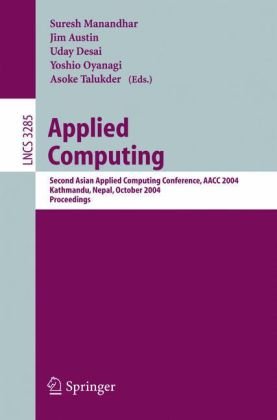

Most ebook files are in PDF format, so you can easily read them using various software such as Foxit Reader or directly on the Google Chrome browser.
Some ebook files are released by publishers in other formats such as .awz, .mobi, .epub, .fb2, etc. You may need to install specific software to read these formats on mobile/PC, such as Calibre.
Please read the tutorial at this link: https://ebookbell.com/faq
We offer FREE conversion to the popular formats you request; however, this may take some time. Therefore, right after payment, please email us, and we will try to provide the service as quickly as possible.
For some exceptional file formats or broken links (if any), please refrain from opening any disputes. Instead, email us first, and we will try to assist within a maximum of 6 hours.
EbookBell Team

4.8
64 reviewsThe focus of the Asian Applied Computing Conference (AACC) is primarily to bring the research in computer science closer to practical applications. The conference is aimed primarily at topics that have immediate practical bene?ts. By hosting the conf- ence in the developingnations in Asia we aim to provide a forum for engagingboth the academic and the commercial sectors in that region. The ?rst conference “Information Technology Prospects and Challenges” was held in May 2003 in Kathmandu, Nepal. Thisyear theconferencenamewas changedto “Asian AppliedComputingConference” to re?ect both the regional- and the application-oriented nature of the conference. AACC is planned to be a themed conference with a primary focus on a small set of topics although other relevant applied topics will be considered. The theme in AACC 2004 was on the following topics: systems and architectures, mobile and ubiquitous computing, soft computing, man machine interfaces,and innovative applications for the developing world. AACC 2004 attracted 184 paper submissions from around the world, making the reviewing and the selection process tough and time consuming. The selected papers covered a wide range of topics: genetic algorithms and soft computing; scheduling, - timization andconstraintsolving; neuralnetworksandsupportvectormachines;natural language processing and information retrieval; speech and signal processing; networks and mobile computing; parallel, grid and high-performance computing; innovative - plications for the developing world; cryptography and security; and machine lea- ing. Papers were primarily judged on originality, presentation, relevance and quality of work. Papers that had clearly demonstrated results were given preference.